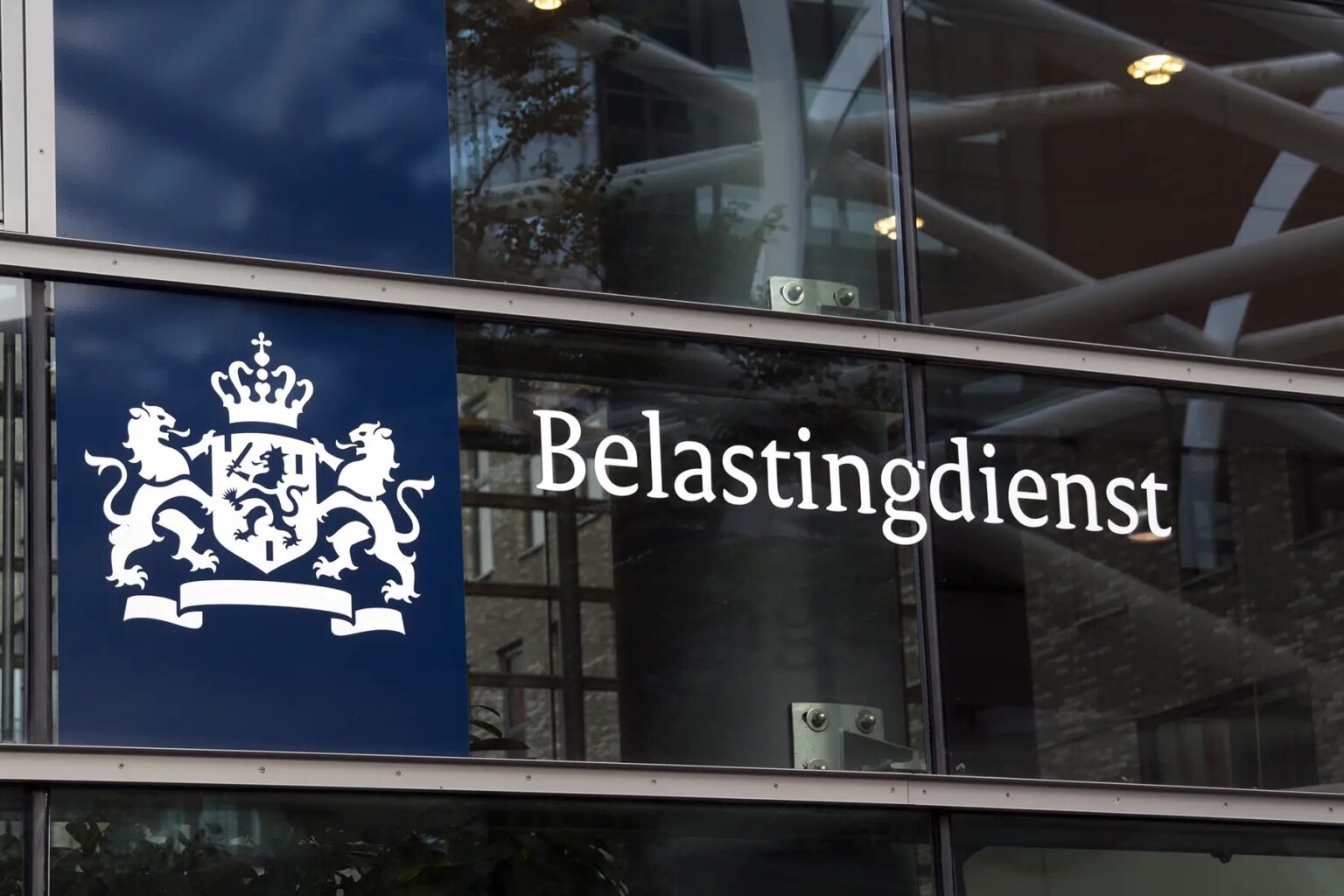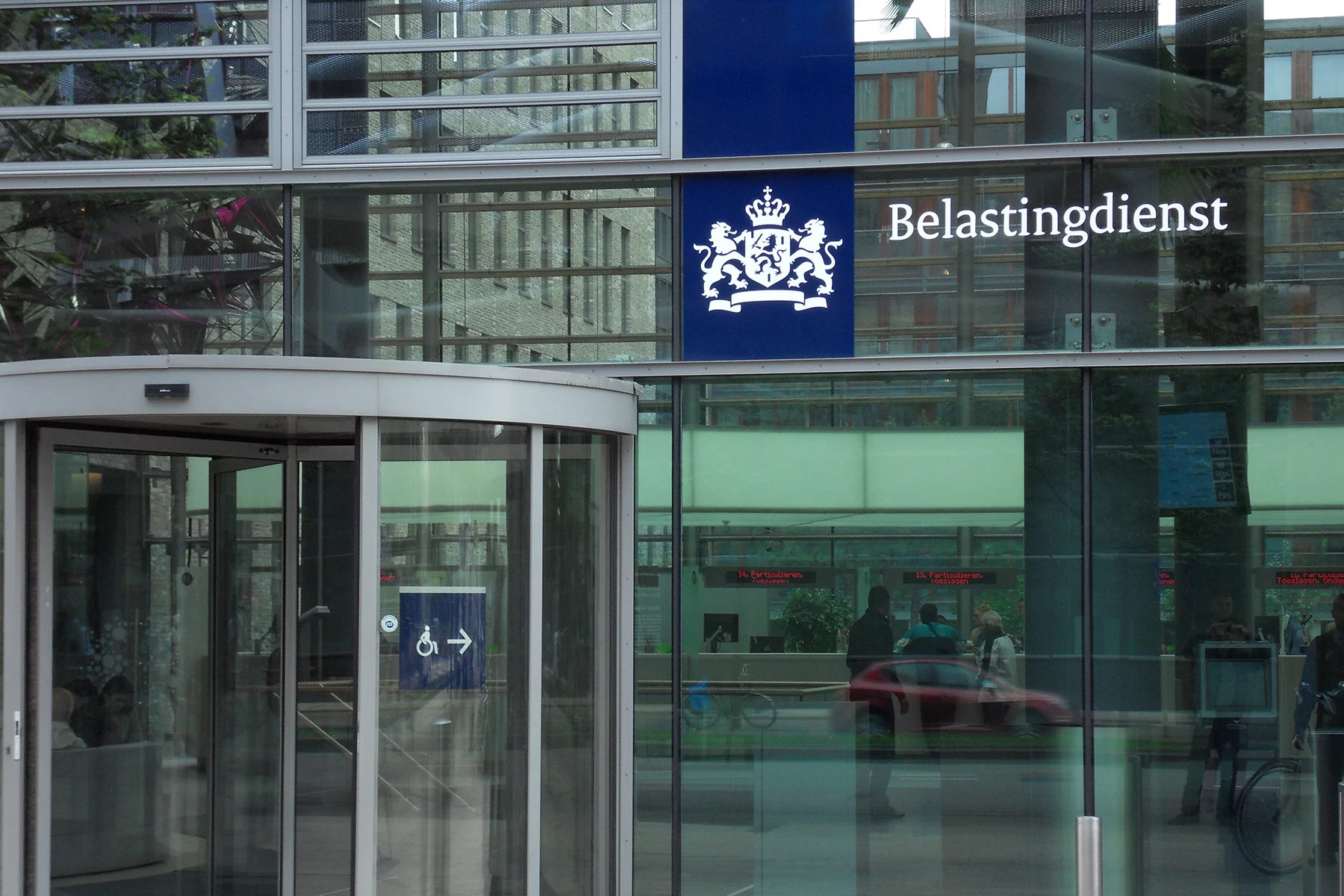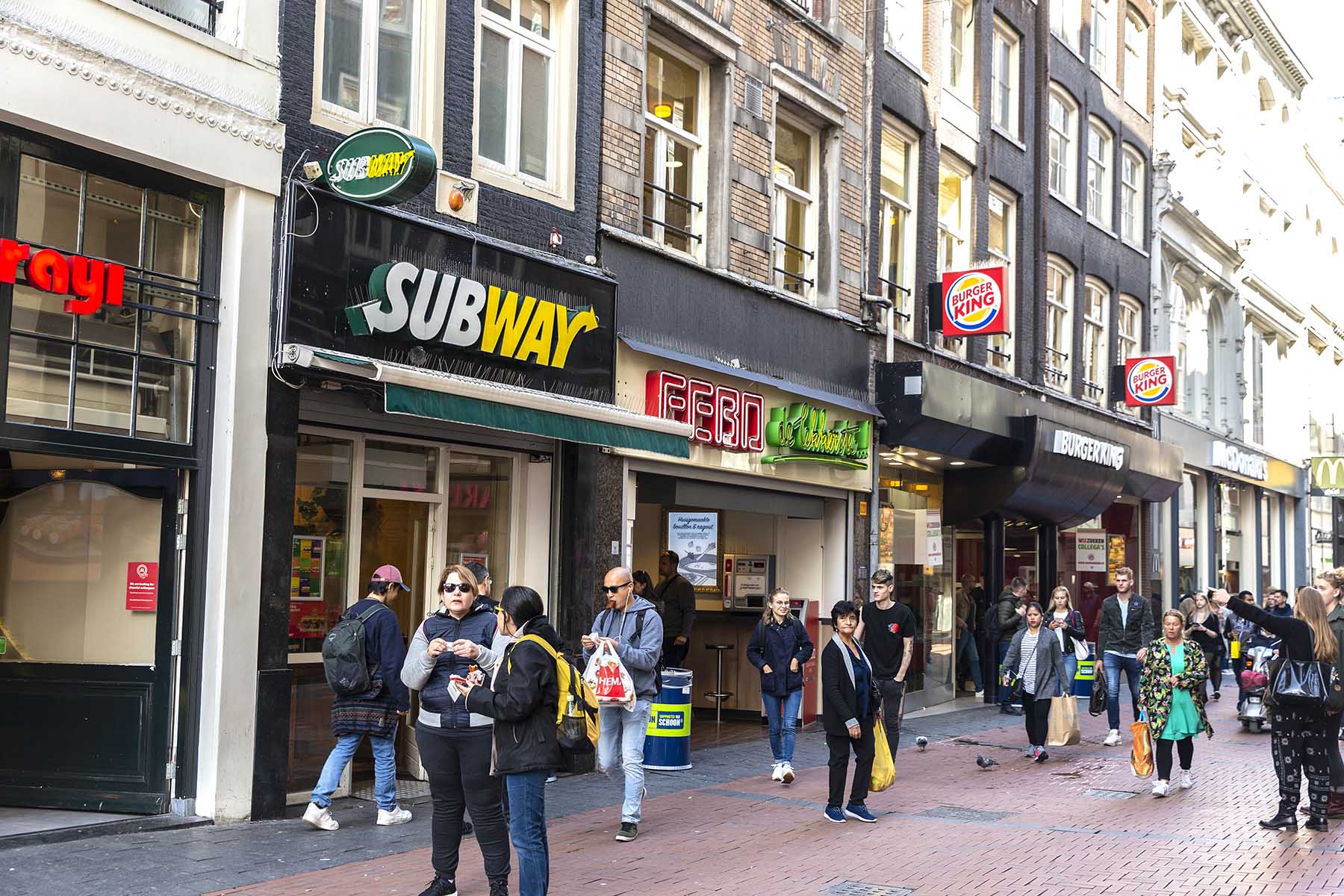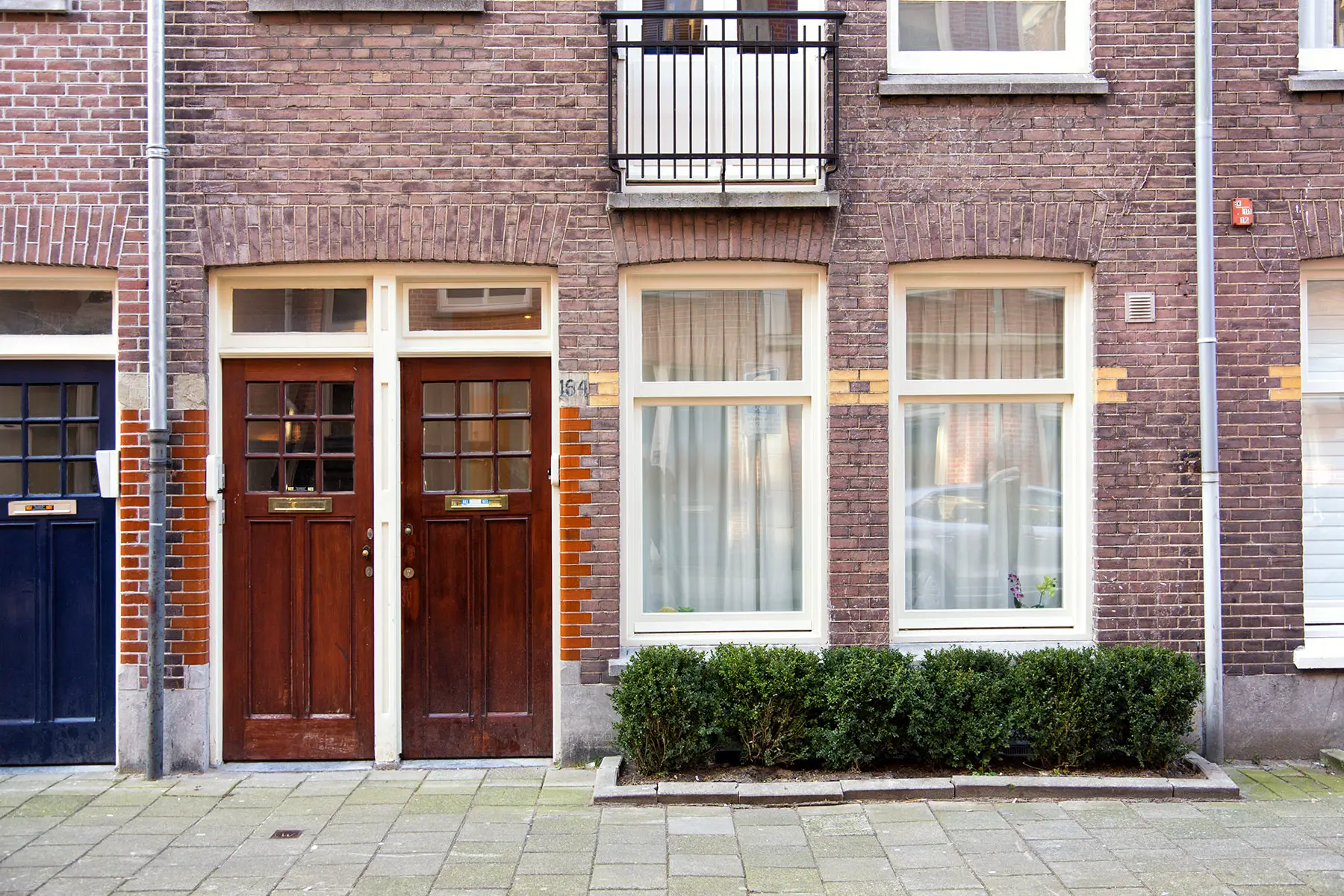There are so many taxes in the Netherlands. The Dutch government expects a share of consumed goods, property, and worldwide income, when resident taxpayers drive a car, own a dog, win the lottery, donate money, and receive an inheritance.
If you’re wondering what else you can expect, this article gives an explanatory overview of the Dutch tax system. Continue reading for information on the following topics:
J.C. Suurmond Tax Consultants
Take the stress out of your taxes in the Netherlands by speaking to the experts at Suurmond. With over 30 years experience, their consultants provide tailor-made advice and personal guidance on a range of Dutch tax matters, helping you and your business navigate the system with ease.
The tax system in the Netherlands
Everyone residing or conducting business within the Dutch borders must pay taxes on their income, wealth, and assets. The tax revenue funds public spending in the Netherlands, including healthcare, education, and social security benefits.
In 2024, the Dutch government was projected to raise around €403 billion in taxes, with the majority coming from income tax, social security contributions, and Value Added Tax (VAT).
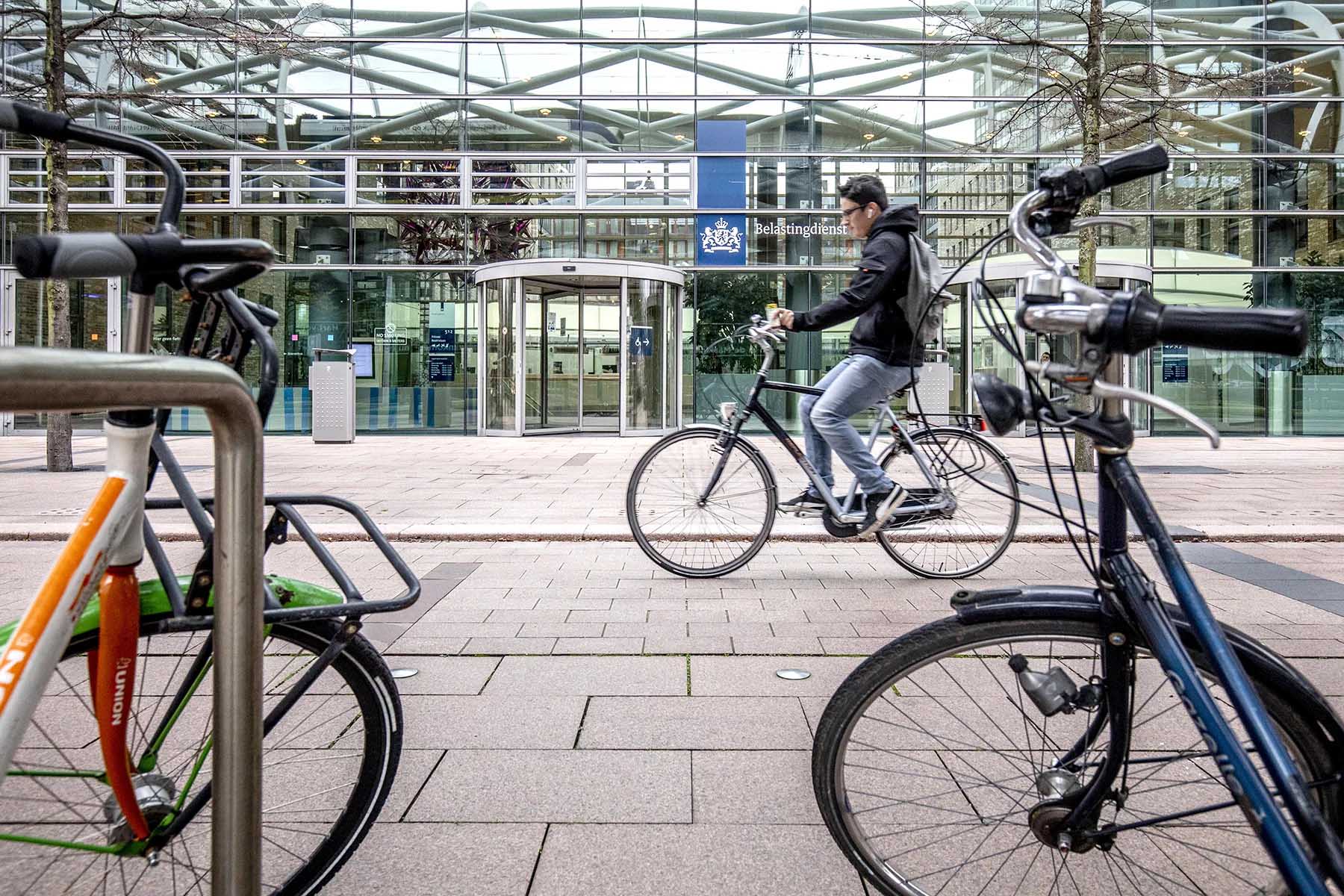
The Dutch Tax Office (Belastingdienst) oversees most taxes in the Netherlands. Other tax authorities include:
- Local governments and water boards
- The Netherlands’ Vehicle Authority (Dienst Wegverkeer – RDW)
Like most countries, the Netherlands has a progressive tax structure when it comes to personal income tax. That means the more you earn during the fiscal year (1 January to 31 December), the higher the tax rate you have to pay. In 2025, the top income tax rate in the Netherlands is 49.5%.
While some might feel that Dutch income taxes are high, it could be worse. According to the Tax Foundation, Denmark (55.9%), France (55.4%), and Austria (55%) have the highest top tax rates in the European Union (EU). The countries with the lowest top tax rates are Bulgaria (10%), Romania (10%), and Moldova (12%).

Who pays tax in the Netherlands?
The Dutch Tax Office distinguishes between resident, non-resident, and partial non-resident taxpayers:
- Resident taxpayers are taxed on their worldwide earnings
- Non-resident taxpayers only pay taxes on their income derived from the Netherlands (e.g., rent or dividends)
- Partial non-resident taxpayers are levied on their Dutch income but are exempt from paying taxes on certain assets (i.e., Boxes 2 and 3, except for real estate investments in the Netherlands)
Under Dutch law, a tax resident is someone whose address or whereabouts is in the Netherlands. The main facts and circumstances that determine tax residence are:
- You spend most of your time at a Dutch address
- Your partner and/or family lives in the Netherlands
- You work in the Netherlands
- You have Dutch insurance
- Your (family) doctor is a resident of the Netherlands
- Your kids go to school in the Netherlands
So, if you live abroad but receive taxable income in the Netherlands, you are generally a non-resident taxpayer.

Highly skilled expats (who are eligible for the 30% ruling) were previously able to opt for partial non-resident taxpayer status and avoid taxes on selected savings and investments. However, this status was abolished on 1 January 2025. A transitional rule now applies, allowing expats to use this tax break until the end of 2026, subject to certain conditions.
How does Dutch tax work for expats?
Expat residents are taxed the same as their Dutch counterparts, meaning they are taxed depending on their taxpayer status (i.e., resident, non-resident, or partial non-resident).
The Netherlands has tax agreements with roughly 90 countries to prevent double taxation. In other words, you won’t be taxed twice for the same source of income or asset.
Sol Tax Advisors
Sol Tax Advisors specializes in expert tax solutions for US expats. Their CPA team ensures compliance with IRS regulations, allowing clients to navigate taxes stress-free. Take advantage of their limited-time offer for a $0 consultation with a CPA (a $270 value), where you can ask questions about your situation.
If your home country does not have a tax treaty with the Dutch government, your earnings default to the Double Taxation Decree 2001. This law determines which country can levy tax on which income.
Meanwhile, if you do happen to be taxed twice, you can start a mutual consultation procedure. The Netherlands will then consult with your home country to find a solution. In some cases, you may also claim a double tax credit (aftrek voorkoming dubbele belasting), which entitles you to a reduction of your Dutch income tax.
Do I need a tax ID number in the Netherlands?
You don’t need a separate tax ID number to pay taxes. Like most official things, taxes in the Netherlands are linked to the Burgerservicenummer (BSN – citizen service number). You will automatically be assigned one when you register in the Personal Records Database (Basisregistratie Personen – BRP).
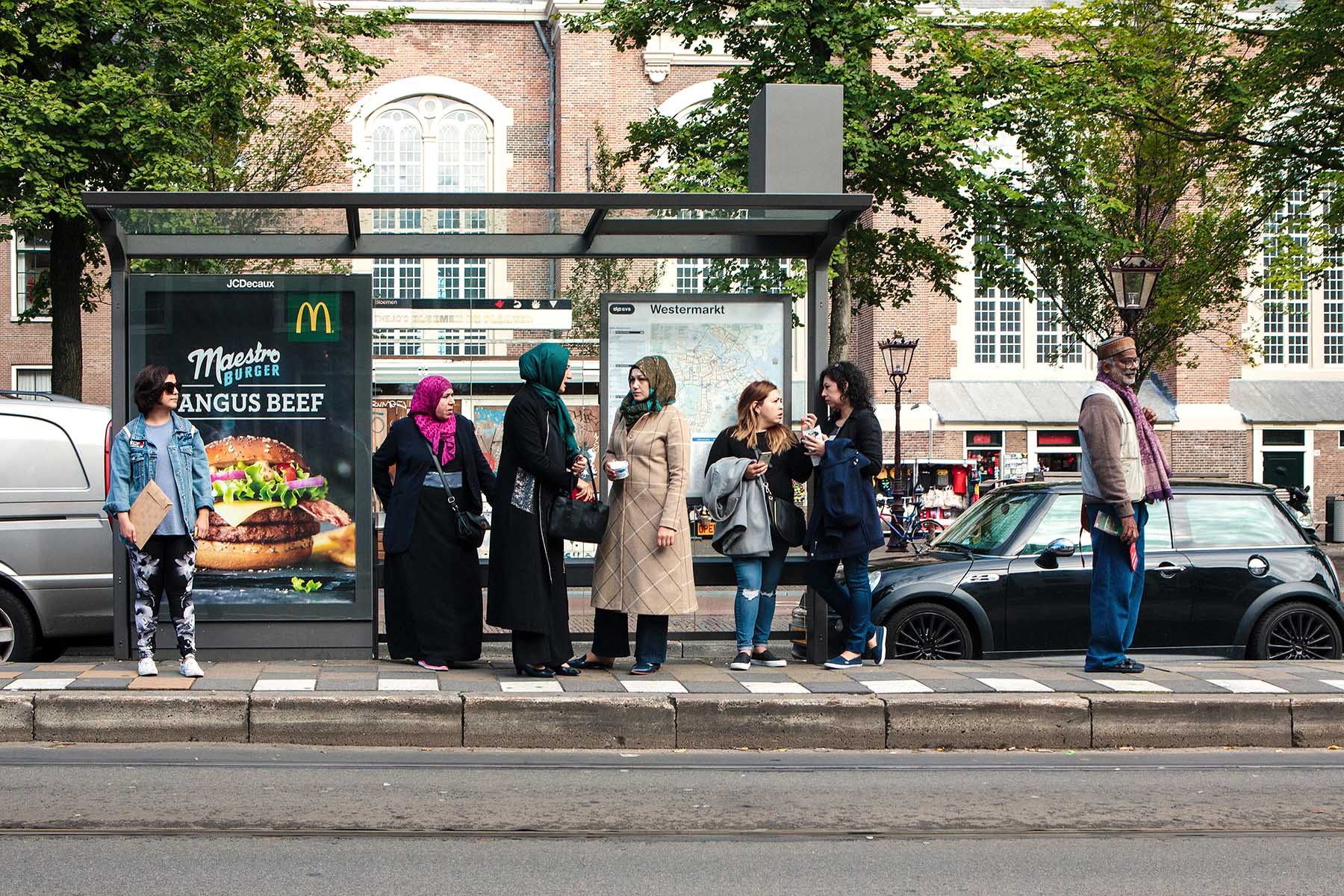
If you’re staying in the Netherlands for less than four months, you have to register with an RNI municipality in the Non-residents Record Database (RNI). After that, you’ll also be given a BSN.
Types of tax in the Netherlands
When living in the Netherlands, you’ll encounter a wide variety of taxes. Some, like water authority tax (waterschapsbelasting), are charged at the local level, while others are paid nationally. Below is an overview of each type.
Dutch income tax
All residents pay income tax on their earnings from the previous year. Taxable income can include:
- Your salary and other income from employment (e.g., holiday bonuses)
- State benefits and pensions
- Business profits
- Interest on savings or investments
- Dividends from investments
- Wealth and property (if you own your own home)
- Received rent (if you rent out your property)
Usually, Dutch employers and pension providers withhold a percentage of your gross monthly salary or pension as wage tax (loonbelasting). That way, when it’s time to file your tax return, you won’t be stuck with a hefty bill.
Social security
All employees (and pensioners to a lesser extent) pay social security contributions (sociale verzekeringspremies) to fund welfare benefits and state pensions (Algemene Ouderdomswet – AOW). These contributions are taken out of your salary at the same time as your wage tax.

There are two types of social security schemes in the Netherlands:
- National Insurance (volksverzekeringen) is taken out of employee wages up to €38,441, with a maximum contribution of €10,628. It funds:
- State pensions
- Survivor benefits (Algemene nabestaandenwet – Anw)
- Care for the elderly and those living with disabilities (Wet langdurige zorg – Wlz)
- Employee insurance (werknemersverzekeringen) is paid by employers and covers you during:
- Unemployment (Werkloosheidswet – WW)
- Illness (Ziektewet)
- Chronic illness (Wet op de arbeidsongeschiktheidsverzekering – WAO)
- Incapacity to work (Wet Inkomen en Arbeid – WIA)
In 2025, employees contribute 27.65% to National Insurance. If you overpay, the Dutch Tax Office will refund you in your annual tax return.
Corporate tax
Public and private companies headquartered in the Netherlands must pay tax on their profits. Whether you need to pay income tax or corporate tax (vennootschapsbelasting – VPB) depends on the type of business you run:
- Self-employed freelancers (zelfstandige zonder personeel – ZZP’er) and sole traders (eenmanszaak) are liable for Dutch income tax
- In public partnerships (maatschap) and commercial partnerships (vennootschap onder firma – VOF), partners are considered individual self-employed workers and thus pay income tax
- Limited companies (besloten vennootschap – BV) are liable for corporate tax
When you register your business with the Dutch Chamber of Commerce (Kamer van Koophandel), the Dutch Tax Office will inform you which tax you’re liable for.

The corporate tax rate is 19% for profits up to €200,000 and 25.8% for anything above that. Some companies can apply for an exemption to access lower corporate tax rates. The Dutch Tax Office’s website has more information.
Businesses must file their corporate tax return within six months of accruing company debt.
Advertising tax
Municipalities may impose an advertising tax (reclamebelasting) on marketing that is visible from the public road, regardless of whether it is on private or public land. Advertising includes billboards, illuminated signs, flags, large menus, and window ads.
Tax rates can differ per city, so it’s worth checking the website of your local authority.
Value Added Tax
Value Added Tax (VAT – omzetbelasting or, more commonly, Belasting Toegevoegde Waarde – BTW) applies to most goods and services.
The standard rate in the Netherlands is 21%, but a reduced rate of 9% applies to common goods, like art, books, food, medicines, and non-alcoholic drinks. The reduced rate also pertains to certain mainstream service providers, such as bicycle repair shops, hairdressers, taxis, and other useful occupations.

Some goods and services are exempt from VAT and pay a 0% tax rate. These include commercial fishing, international passenger transport, ship and aircraft manufacturing, solar panels, and worldwide export. The services of cartoonists, composers, journalists, and writers are also usually VAT-exempt.
Can you get a refund on VAT?
Visitors from outside the EU may be eligible for a VAT refund on purchases over €50 in the Netherlands. You’ll need to have a written agreement from the store owner that they’ll refund your VAT, and you must file your claim within three months after the month of purchase and after leaving the country.
The Dutch government provides more information about reclaiming VAT on their website.
VAT for businesses and freelancers
If you supply goods or services in the Netherlands, you must charge VAT, and the amount must be clearly shown on the invoice.
Likewise, freelancers (ZZP’ers) and self-employed entrepreneurs must impose the tax. However, if your turnover is less than €20,000 a year, you can apply for the small business tax scheme (kleineondernemersregeling – KOR). If approved, you’ll be placed in the zero tariff category.
Xolo
Xolo is an all-in-one service tailored for expat freelancers in the Netherlands. Their team of expert accountants and digital business management tools support freelancers in English so they feel secure when setting up and running a business. Sign up for Xolo to take care of your invoicing, expenses, and taxes easily.
Import and export tax
Companies that import goods into the Netherlands usually have to pay import duties and VAT. Excise goods (e.g., alcoholic drinks, tobacco products, and mineral oils) are also subject to excise duties and other levies.

Likewise, some goods, such as agricultural or industrial products, must pay levies to prevent them from entering the European market at exceptionally low prices.
Dutch property tax
When you own property in the Netherlands, such as a home or commercial real estate, you must pay property tax. This is calculated based on the property’s rental value (waardering onroerende zaken or WOZ-waarde), which is adjusted annually by your municipality on 1 January.
The Netherlands has several types of property tax:
- Notional rental value (eigenwoningforfait) – if you live in a house that you own, the Dutch Tax Office considers that a source of taxable income (Box 1 income tax). That’s because homeownership allows you to build capital, unlike people who have to pay rent each month. The notional rental value is 0.35% for homes worth up to €1.31 million and 2.35% for more expensive real estate.
- Real estate tax (onroerendezaakbelasting – OZB) – you must pay a real estate tax, simply for owning your own landed property. Each can determine its own OZB tax rate, generally between 0.1% and 0.3% of the property value. The municipality must use these funds to invest in community interests, such as traffic lights, fire brigades, and the maintenance of green spaces.
- Movable property tax (roerende zaakbelasting – RZB) – if you own movable property (such as a houseboat (woonboot)), you must also pay property tax. This is the same as OZB but with a different name.
Second (third, fourth) properties are part of your wealth and assets (Box 3 income tax). Any income you derive from renting it out, on the other hand, is taxable under Box 1. Non-resident taxpayers (i.e., those living abroad) who rent out a Dutch property only pay tax on the rental income.
Property transfer tax
When you buy a house, land, or other property, the Dutch Tax Office usually levies a property transfer tax (overdrachtsbelasting). This is 2% for homes and 10.4% for anything else (e.g., a separate garage or parking structure). However, realtors (makelaars) often calculate this in the sale price of the house, so you won’t likely be charged extra.
Commuter tax
If you spend more than 90 days out of the year at a furnished home where you’re not registered, you may be liable for commuter tax (forensenbelasting). This applies to second residences like vacation homes or mobile homes. If you’re staying less than 90 days, you’ll likely be subject to tourist tax (more on that below).

Some exceptions apply. For example, prisoners, medical patients, and military staff are not subject to commuter tax. You can find more information on the municipality’s website.
Municipal tax
Every Dutch household and business pays an annual municipal tax (gemeentebelasting) and water authority tax (waterschapsbelasting).
Municipal taxes consist of:
- Sewerage levy (rioolheffing) – the sewerage levy is a fixed amount that pays for the right to be connected to the sewer system. It also applies if your home or boat uses a septic tank.
- Waste levy (afvalstoffenheffing) – the municipality charges a waste levy to collect, process, and dispose of household trash. The exact amount you pay depends on your locality and the size of your household.
Your municipal authority will most likely send you a combined bill that includes the OZB.

Writer and local expert
Laura van der Most
Insider tip
If you rent your place, make sure to ask your landlord or lady who’s responsible for paying the municipal taxes. Sometimes, it’s included in the price, and other times it’s not.
In addition to these municipal taxes, residents in the Netherlands are subject to water authority tax. This is collected by regional water boards (waterschappen), and pays for flood protection (maintenance of dykes and control of water levels) and clean water.

Water authority tax includes:
- Water purification levy (zuiveringsheffing) – wastewater (e.g., shower water) is typically discharged into the sewage system; the water purification levy pays to clean it. The amount is based on the size of your household.
- Water system levy (watersysteemheffing) – the revenue of the levy funds flood protection and waterway maintenance. It is usually a fixed rate.
- Water pollution levy (waterverontreinigingsheffing) – if you pollute the environment by discharging wastewater into surface water, you must pay a pollution levy. Residents won’t likely see this type of levy on their tax bill.
Precario and demurrage
Municipalities may impose a precario tax (precariobelasting or simply precario) on objects placed on public land. Examples of taxed items are building materials, flags, neon signs, sunscreens, and terraces.
The tax cannot be levied if the object must be tolerated due to a legal or contractual obligation. For instance, phone and TV cables are legally tolerated. As such, they are not subject to taxation.
If your home or trading space has a fixed site on public land or water, you may be subject to demurrage. Demurrage is translated into two different things, depending on the public space. For example, houseboats and commercial vessels with fixed mooring are liable for liggeld. Likewise, travelers (e.g., Roma or Sinti) with a caravan or trailer on municipal land must pay stageld or staangeld.
Precario and demurrage rates differ per city, so it’s worth checking the website of your local authority for more information.
Dog licenses
Due to a long-standing medieval custom, municipalities may require residents to pay for a dog license (hondenbelasting) if they have one or more canines. They can use this to fund publicly available dog poop bags and bins, for example.

Your local authority is free to set its own rules. For instance, some exempt service dogs for the blind and visually impaired, while others do not. Visit your municipality’s website to learn about its dog licensing policy, including the fines for nonpayment.
Tourism tax
Municipalities may charge visitors from outside their bounds (including Dutch nationals) a tourism tax (toeristenbelasting) for paid accommodation. This applies to commercial businesses like apartments, campsites, hotels, and private individuals who use their homes for holiday rentals or bed and breakfasts (including Airbnb).
Some cities also tax their waters. For example, Amsterdam imposes a tourist tax of €14.50 per passenger on operators of large cruise ships or riverboats.
Tax rates differ per municipality; you can find more information on their respective websites.
Road and parking tax
Vehicle owners must pay motor vehicle tax (motorrijtuigenbelasting – mrb) every three months. The amount varies per vehicle type, depending on weight, fuel type, and environmental impact.
The Dutch government requires certain vehicles to pay a tax surcharge. For example, some heavy trucks are subject to an additional heavy vehicle tax (belasting zware motorrijtuigen – bzm). Likewise, owners of older diesel cars must pay an extra particulate matter surcharge or soot tax (fijnstoftoeslag).
In other cases, your vehicle may be tax-exempt. There’s a zero tariff for fully electric and hydrogen-powered cars. Similarly, vintage cars may have a reduced rate or pay no road tax at all.
Vehicles must be registered with the Netherlands Vehicle Authority (Rijksdienst voor het Wegverkeer – RDW). The Dutch Tax Office will then automatically send a tax assessment. You can also use the online tax calculator (in Dutch) to budget for your upcoming motor vehicle tax bill.
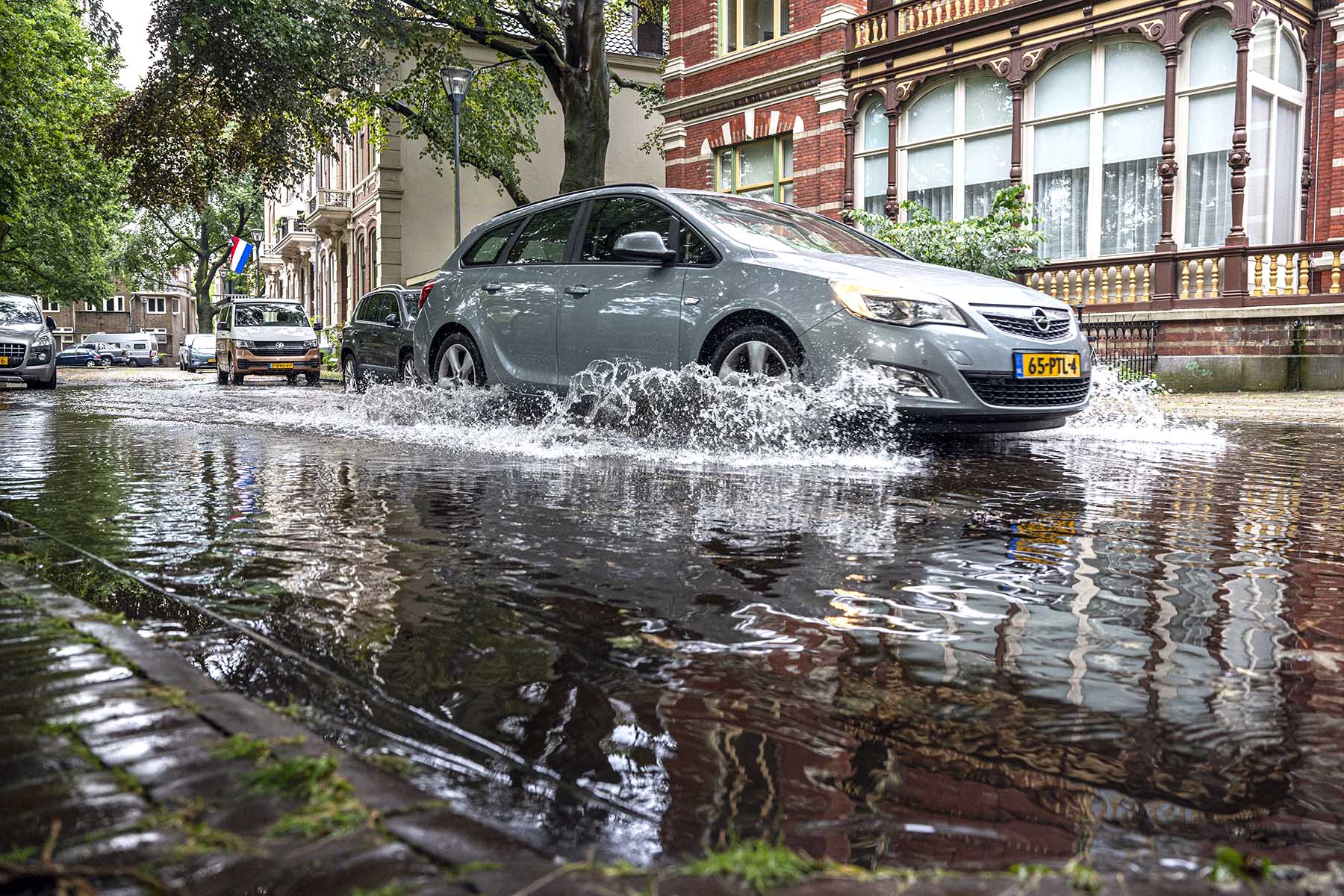
When you drive in the Netherlands, it’s only natural to assume you have to park your car somewhere. Parking your vehicle in a public space often requires parking fees (parkeerbelasting); you pay this in the form of a parking ticket (parkeerkaartje) or parking permit (parkeervergunning).
Environmental tax
The Netherlands imposes several taxes to protect the environment. For example, a plastic tax was introduced in July 2023 to prevent the use of disposable plastics. Consumers now pay an extra €0.05-0.50 for single-use cups and containers that are made with plastic.
Other Dutch environmental taxes (milieubelastingen) include:
- Carbon tax (CO2-heffing) – companies that emit carbon dioxide must pay a surcharge
- Coal tax (kolenbelasting) – people who mine, produce, or import coal to use or sell as fuel must pay fuel tax. Coal used to generate electricity is tax-exempt.
- Energy tax (energiebelasting) – energy tax is levied on the consumption of electricity, natural gas, and certain fossil fuels. Some companies are allowed to emit greenhouse gases (emissierecht); for more information, see the Dutch Emissions Authority (Nederlandse Emissieautoriteit).
- Flight tax (vliegbelasting) – airplane passengers over the age of 2 leaving from a Dutch airport must pay a €29.05 flight tax per passenger per flight (excluding transfers)
- Groundwater levy (grondwaterheffing) – corporations that pump large amounts of groundwater are liable for a groundwater levy. This tax doesn’t apply to homes with a regular water pump in their garden.
Capital gains tax
Capital gains tax is what you pay when you sell, give away, or get compensation for something that has increased in value since you obtained it.
The Netherlands does not tax capital gains. Instead, the Dutch Tax Office assumes that you have a return of up to 5.69% over your total asset value, irrespective of whether your actual gains are lower or higher. Whatever dividends you derive from wealth and assets are then subject to income tax.
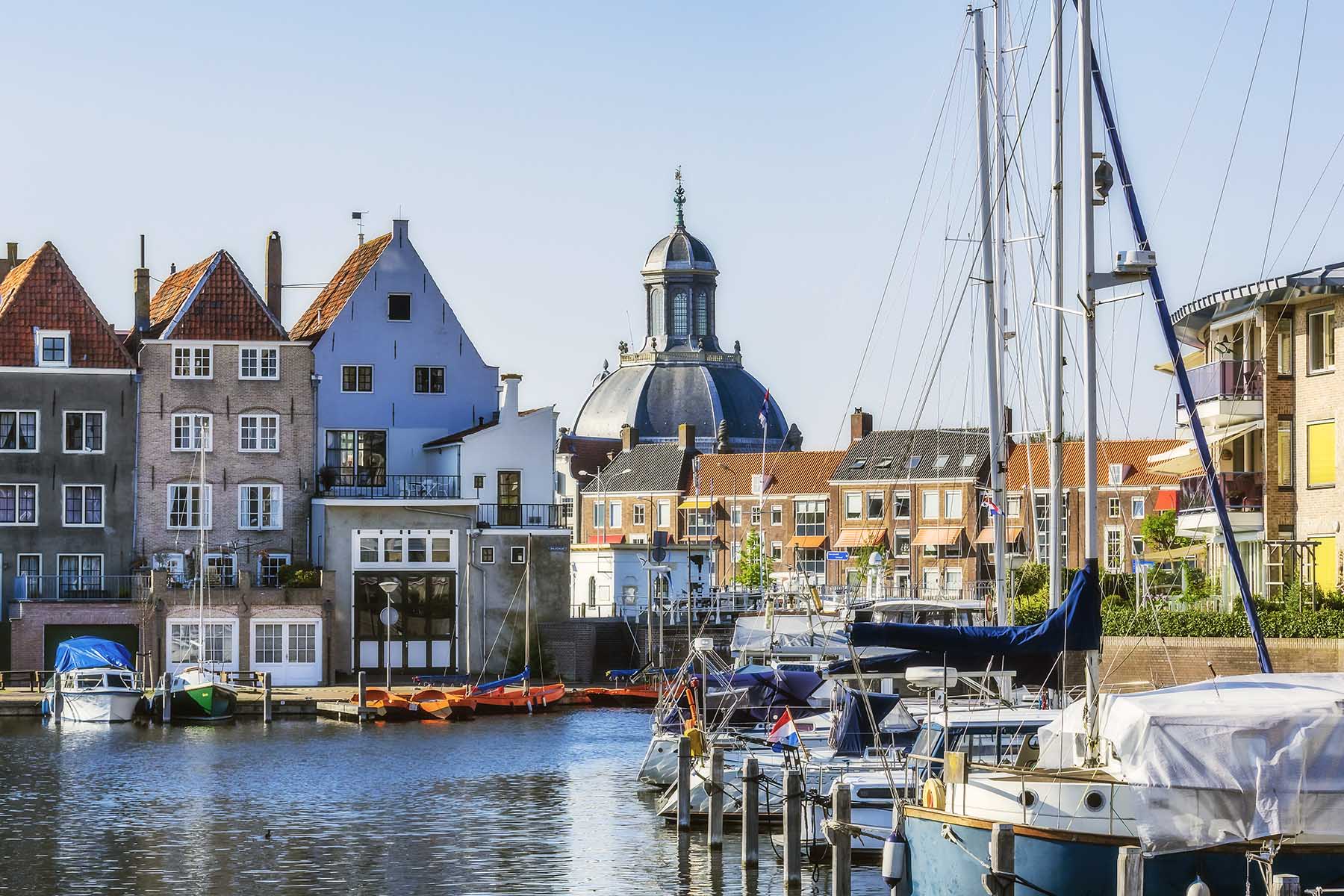
Gaming tax
If you win a large prize (worth over €449) in a lottery or online game, you’re liable for gaming tax (kansspelbelasting). This tax does not apply when you win a working pool (e.g., colleagues betting on the world championship football). In 2025, the gaming tax rate is 34.2%.
Sometimes, the organizers pay the gaming tax for you (this will be set out in their Terms and Conditions), and other times, you’re required to foot the tax bill yourself. If the organizer is based in the Netherlands, they will subtract the gaming tax from your winnings and pay the remainder.

Writer and local expert
Laura van der Most
Insider tip
In some cases, the reward is worth less than the price you have to pay.
For example, if you win a bicycle worth €1,000, the Dutch Tax office will send you a bill for €305. That doesn’t seem fair at all if you thought you were going to get a free bike.
In that case, you could choose to refuse the prize: if you don’t accept the winnings, you don’t have to pay gaming tax.
Dutch gift tax
To prevent inheritance tax fraud, residents and non-residents must pay a gift tax (schenkbelasting) when they receive a money donation from someone in the Netherlands. This levy also applies when:
- The gift-giver is a Dutch citizen who has been living abroad for up to 10 years
- The donor is a foreign national who has been living outside the Netherlands for up to a year
You don’t have to pay gift tax if you receive a donation from abroad from someone who has never lived in the Netherlands.

The 2025 tax rate depends on the donation and the relationship between you and the gift-giver:
| Size of the donation | Partner and (foster or step) children | Grandchildren and other descendants | Other persons (e.g., friends or relatives) |
| Up to €154,197 | 10% | 18% | 30% |
| €154,198 or more | 20% | 36% | 40% |
Certain exemptions (schenkingsvrijstellingen) apply. For example, some charity organizations (ANBI, SBBI, or SBBI support foundation) do not have to pay gift tax. The following other donations are also tax-free:
- Parents may gift their child €6,713 per year, including foster and stepchildren
- Good samaritans may donate €2,690 per year to someone else, including family members and random strangers
- Parents may gift their adult child (aged 18–40) a one-off €67,064 to pay for an expensive study program
Business owners may also pass their organization on to someone else tax-free, provided the situation meets all requirements. You can read more information about the business succession scheme (bedrijfsopvolgingsregeling – BOR) on the Dutch Tax Office’s website.
You must file your tax return within two months after the end of the calendar year in which you received the donation.
Gift tax to settle urgent debt
In some cases of extreme debt, you may be granted a special tax exemption (bijzondere vrijstelling voor dringende schulden). This applies only to very urgent situations, for instance, if you need money to pay off rental debt and would be evicted otherwise. The debt must also be so severe that you cannot possibly pay it by yourselves, even if you’d sell all your assets.

To apply for the special tax exemption, you must file a gift tax return with the Dutch Tax Office and tick the box ‘special exemption for urgent debts’.
Inheritance tax
After someone’s death in the Netherlands, their next of kin may be liable for inheritance tax (erfbelasting), should they accept the inheritance. They must file the tax return within eight months of the death.
Some parts of the legacy are tax-exempt (vrijstellingen erfbelasting), depending on your relationship with the deceased:
| You are: | Amount that is tax-free in 2025 |
| Spouse or (registered) partner | €804,698 |
| Child (including foster, step, or grandchild) | €25,490 |
| Child with a disability | €76,453 (subject to requirements) |
| Parent | €60,359 |
| Other heirs (e.g., a sibling or friend) | €2,690 |
Other amounts that are tax-free include accident benefits, death benefits, and posthumous wages.
After that, the following tax rates apply:
| Inheritance | Partner and (foster or step) children | Grandchildren and other descendants | Other heirs (e.g., friends or relatives) |
| Up to €154,197 | 10% | 18% | 30% |
| €154,198 or more | 20% | 36% | 40% |

If the death occurred abroad, you may not be subject to Dutch inheritance tax. For example, if:
- The value of your inheritance is less than or equal to the above-mentioned tax exemption
- The deceased was not a Dutch citizen and did not live in the Netherlands
- The deceased was a Dutch national but died after having lived more than 10 years abroad
In those cases, you will likely have to pay the inheritance tax of the other country.
Funeral rights
The municipality may charge you for the right to use a cemetery or crematorium and for their services. While these are called funeral rights (lijkbezorgingsrechten), they are not free and your next of kin does actually have to pay.
The amount differs per city and burial place; for example, historic cemeteries may have higher charges. The local funeral director can explain more about this tax.
Tax avoidance and evasion in the Netherlands
The Netherlands is one of the most important hubs globally when it comes to tax avoidance (belastingontwijking) and tax evasion (belastingontduiking). Only the British Virgin Islands, the Cayman Islands, and Bermuda play a larger role, according to a report by the international NGO Tax Justice Network.
Their 2024 Corporate Tax Haven Index ranks the Netherlands 7th out of 70 countries worldwide. The NGO states that by facilitating global tax fraud, the Netherlands caused other nations to lose $59 billion in tax revenue.
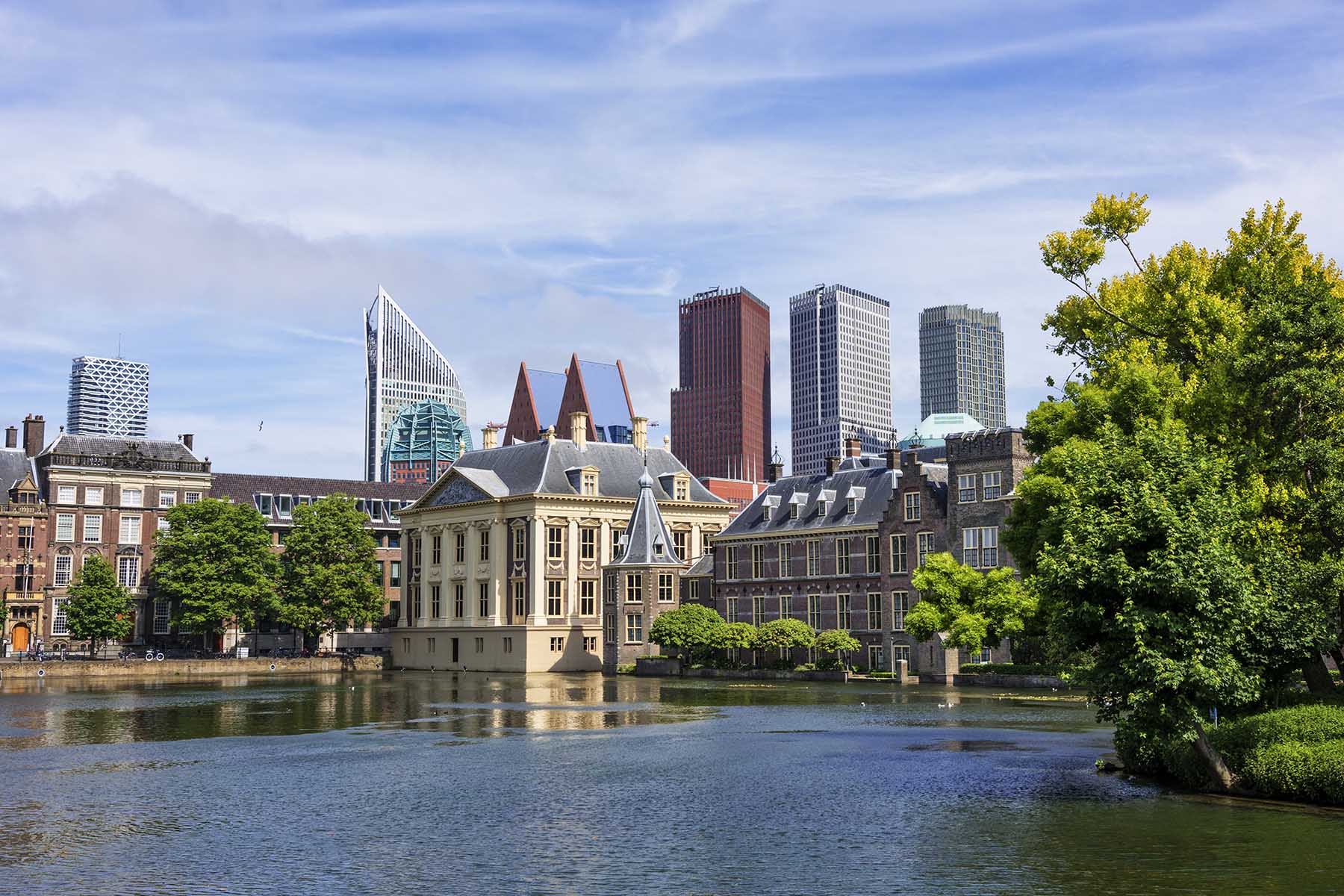
You can report any suspected petty incidents of tax avoidance, evasion, or fraud by writing to the Dutch Tax Office. Large-scale financial fraud can be related to the Fiscal Information and Investigation Service (Fiscale inlichtingen en opsporingsdienst – FIOD).
What if I don’t do my taxes on time or at all?
When you know you will not be able to pay your tax on time, you should get in touch with the Dutch Tax Office as soon as possible. In many situations, they can offer you an extension and help you organize a payment plan. If you don’t have enough funds to pay your municipal taxes, your local authority may also offer you a kwijtschelding (tax waiver or remission).
The administrative process for nonpayment of Dutch taxes depends on the tax authority. In general, you’ll receive two reminders (aanmaning), followed by a writ of execution (dwangbevel) or a visit by a bailiff (deurwaarder). After that, a court may order the seizure of your assets and property.
Fees and penalties
Depending on your (in)action, the Dutch Tax Office may impose a default penalty (betaalverzuimboete) and a misdemeanor fine (vergrijpboete). Tax fines and penalties include:
| (In)action | Fine |
| Failing to request a declaration form on time | €3,354 |
| Failing to submit your income, inheritance, or gift tax returns on time | €469 (up to €6,709 for repeat offenders) |
| Failing to submit your corporate tax returns on time | €3,354 (up to €6,709 for repeat offenders) |
| Failing to pay your taxes on time | Up to €6,709 |
| Submitting an incorrect tax return due to gross negligence | 25% of the tax you incorrectly concealed |
| Submitting a tax return where income from wealth and investments (Box 3) was inaccurate due to gross negligence | 75% of the tax you incorrectly concealed |
| Intentionally hiding assets, income, property, and the like | 50% of the tax you deliberately concealed |
| Intentionally hiding income from wealth and investments (Box 3) | 150% of the tax you deliberately concealed |
| In case of fraud or a repeat offender | 100% of the tax you evaded |
| In case of fraud involving Box 3 or a repeat offender | 300% of the tax you evaded |
If you disagree with the fine or penalty, you can file an objection within six weeks of receiving the fine. The Dutch Tax Office usually processes the appeal within 12 weeks, though it may take up to 18 weeks.
Where to find tax advice in the Netherlands?
The materials reviewed in this article are for informational purposes only and should not be taken as tax advice for your individual situation. You should always consult your own tax expert with any specific tax issues or questions.

The Netherlands has a number of expat-friendly tax advisors who offer help and information in English or other languages, including:
Business.gov.nl also lists several Dutch organizations that can provide guidance to businesses, freelancers, and self-employed professionals.
Useful resources
- Belastingdienst – official website of the Dutch Tax Office with information about the tax system
- Association of Dutch Municipalities (Vereniging van Nederlandse Gemeenten – VGN) – official website with extensive information on every possible municipal tax there is in the Netherlands
- Register of Dutch Municipalities – list of all municipalities in the Netherlands
- Business.gov.nl – official website of the Dutch government and the KvK for entrepreneurs and business owners in the Netherlands. It provides financial and legal information, as well as news bulletins and webinars.
